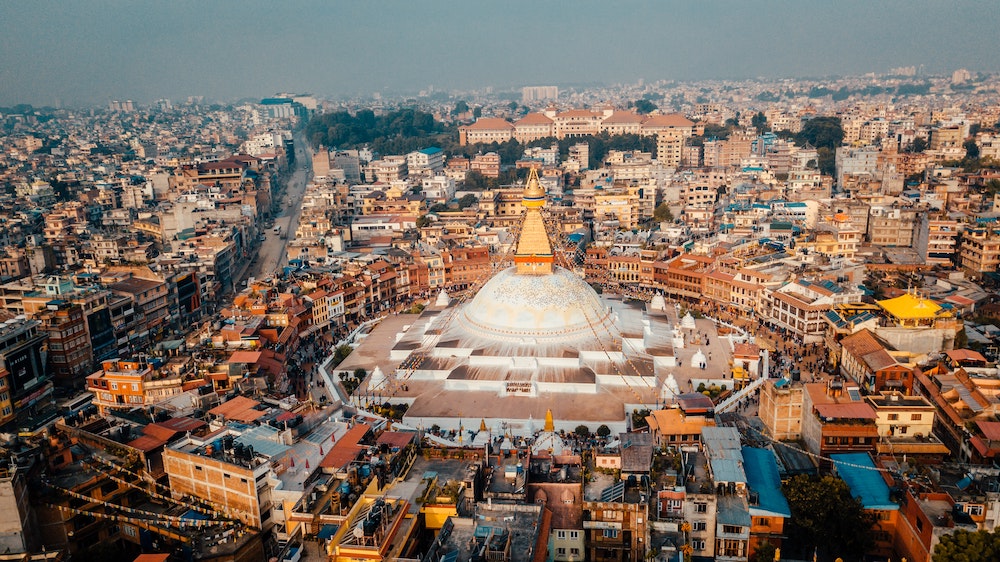Foreign labour agreement at risk as landlocked Himalayan country fights deadly virus surge following collapse of communist government.
ON 13 May, KP Sharma Oli was reappointed as prime minister of Nepal for the third time. This came days after he lost a no-confidence vote. Just more than a week after this, on 22 May, President Bidya Devi Bhandari dissolved parliament and fixed the general election for November. The events show how unpredictable politics really is in the landlocked Himalayan country.
Nepalese politics, for a greater part of the decade, is precarious. In 2018, the Nepal Communist Party (NCP), which is a merger of two communist parties – the Communist Party of Nepal (United Marxist-Leninist) and the Communist Party of Nepal (Maoist Centre) – formed the Nepalese government.
This merger was a marriage of convenience between the two communist parties, considering their torrid relationship. In March 2021, the NCP government collapsed when the supreme court declared the NCP invalid and effectively nullified the merger. What ensued after is a constant state of flux in Nepal politics, leading up to the latest development – fresh elections scheduled at year-end.
This, of course, is playing out to be only one of caretaker prime minister Oli’s worries as the pandemic becomes increasingly unmanageable. As it stands, cases and deaths have breached 513,000 and 6,300. It is clear that the political instability in Kathmandu has been detrimental to handling the exponential surge in cases and addressing the failing medical system.
Politics has also had significant influence on Kathmandu’s relationship with Putrajaya. One of the most important aspects of the Malaysia-Nepal relationship has always been labour migration. Malaysia has been the top destination for Nepali workers since 2008.
In May 2018, however, following an exposé on corruption and malpractice related to the entry of Nepali workers into Malaysia, labour, employment and social security minister Gokarna Bista placed a temporary ban on Nepali citizens going to Malaysia for work.
Malaysian and Nepalese news media outlets exposed a network of companies and government agencies in both countries involved in the alleged exploitation of 600,000 Malaysia-bound Nepali workers between September 2013 and April 2018.
While Bista took the unprecedented step of stopping labour movement from Nepal to Malaysia, he was also instrumental in signing a landmark memorandum of understanding (MoU) with former human resources minister M. Kula Segaran.

The Malaysia-Nepal agreement was said to have set a standard for migration-related reforms in Nepal, and also laid the basis for agreements signed with the United Arab Emirates and Mauritius in 2019. In September 2019, Nepalese could resume travelling to Malaysia for work, this time, protected under the provisions of the new agreement between both countries.
This includes employers paying for visa fees and air tickets and guaranteeing salaries in the first week of every month. This, in addition to the mandatory registration of all foreign workers with Socso and contribution to the employment injury scheme.
Bista was sacked two months later. This was the result of several calculated moves by the then prime minister Oli to safeguard the interests of both factions within the NCP. Removing Bista, who was considered an able leader that gave the ministry a much-needed facelift, was said to be a dangerous decision by Oli.
Bista’s successor, Rameswar Rai Yadav, stayed in office for a little more than a year until he resigned following the political deadlock triggered late last year. During Yadav’s time as minister, unscrupulous labour-related agencies that went dormant in Bista’s ministerial term threatened to restore the former order.
Yadav was succeeded by Gauri Shankar Chaudhary who was re-inducted into the cabinet after losing his parliamentary seat and ministership after defecting from his mother party, the CPN (Maoist Centre). His tenure has proven to be short-lived, now that parliament has been dissolved. Hence, in the last three years, three different ministers have led the ministry.
This is an incredibly dynamic situation and can have very real repercussions on how labour migration between Nepal and Malaysia pans out in the long run. Article 13 of the MoU states that either party reserves the right to suspend the agreement for reasons of national security or even national interests. Hence it is important to keep an eye on the political and national developments in Nepal, especially this year, as they could potentially impact on existing bilateral agreements.
Of course, the pandemic has also made it impossible for the agreement to be fully utilised now that Putrajaya has imposed travel restrictions on workers coming from Nepal. Nepal’s Department of Foreign Employment said it has not issued any new permit for workers going to Malaysia in the last eight months of the current fiscal year 2020/2021 due to a lack of demand. The current fiscal year also saw employment in jobs typically held by Nepali migrants decline by 30% in Malaysia.
It is also important to note that despite the pandemic, Malaysia has made significant provisions for undocumented immigrants in the country, including those from Nepal, under the labour recalibration programme and the “back for good” (B4G) amnesty programme.
The recalibration programme aims to regularise illegals as foreign workers while B4G allows undocumented migrant workers to return home without facing the penalty of up to RM10,000 for overstaying, and a jail term of up to five years. A total of 5,900 Nepalis opted for the B4G scheme.
It is not uncommon for national politics to have an impact on foreign policy or international relations. The key to Putrajaya and Kathmandu’s lasting partnership is to ensure that labour-related agreements remain resilient and free from political whim. A check and balance system where stakeholders engage in dialogue to monitor the implementation of the agreements would be a good way to do this. This will not only be mutually beneficial to both countries but contribute to the wellbeing of the workers.





